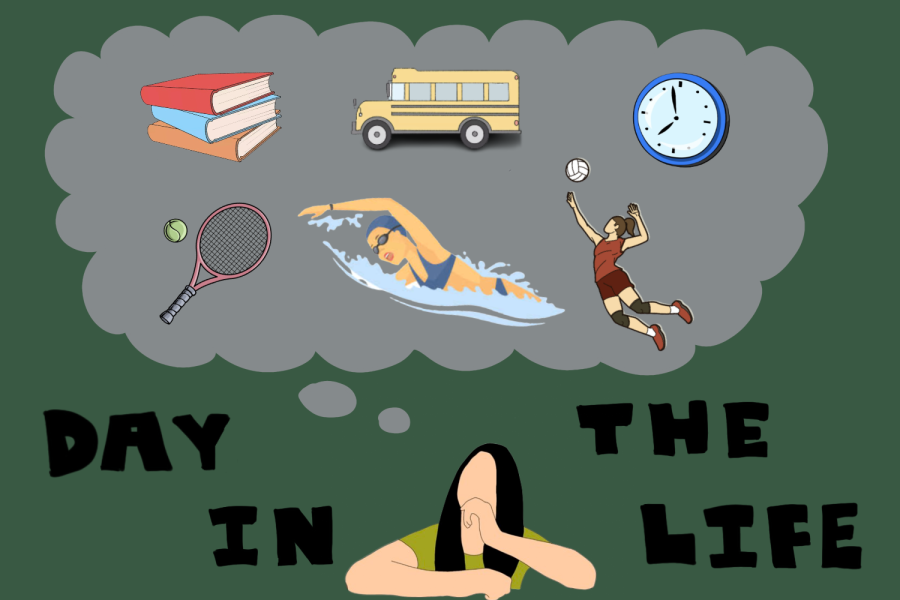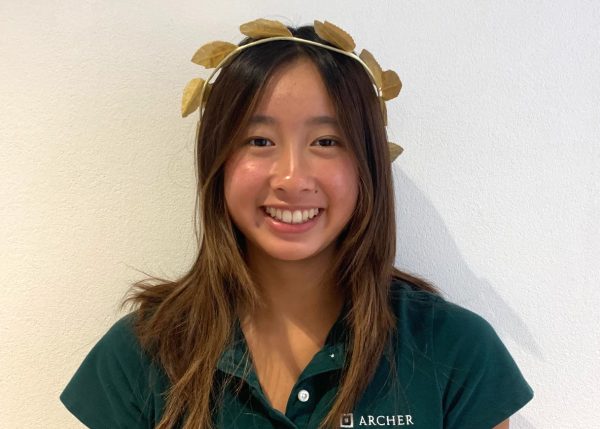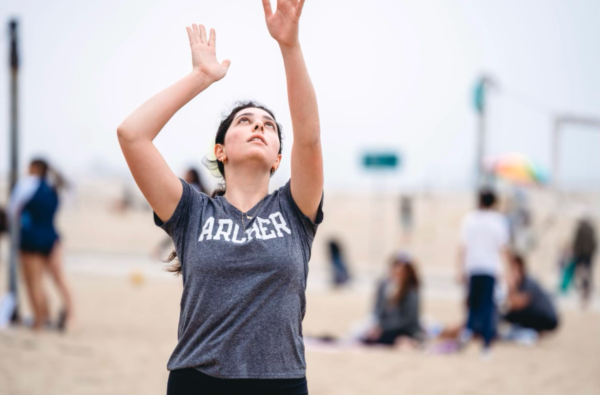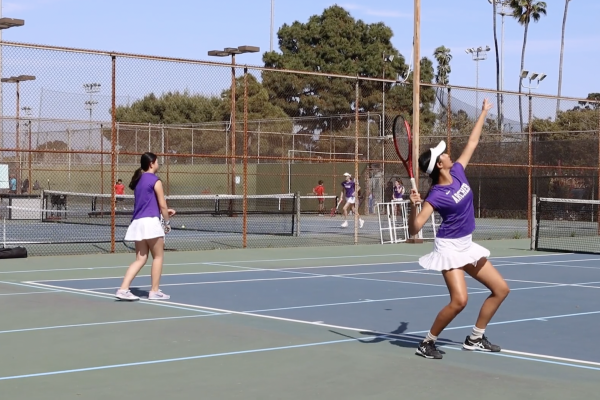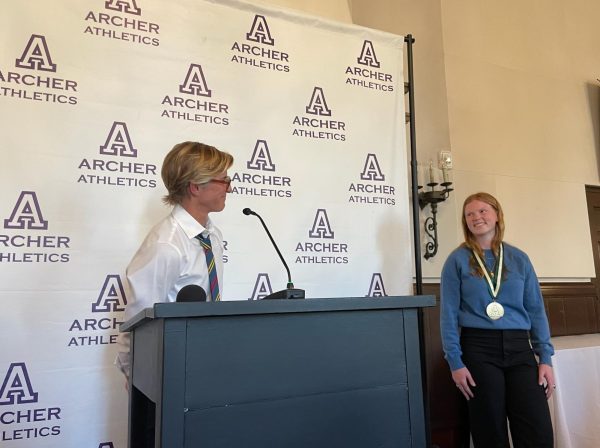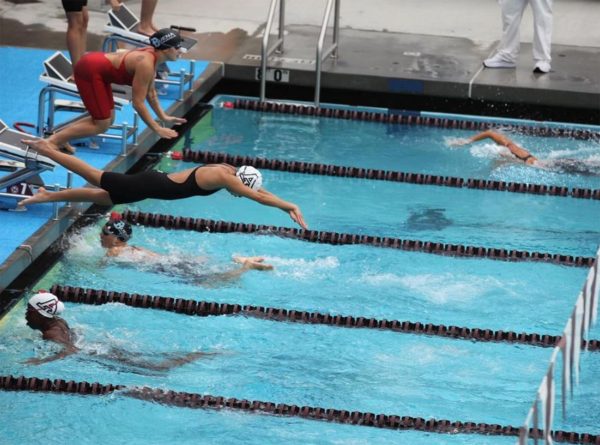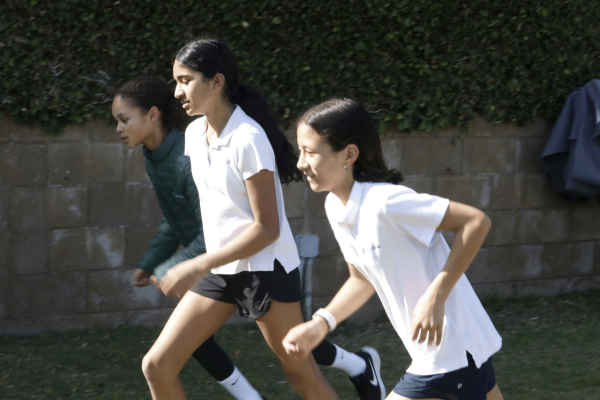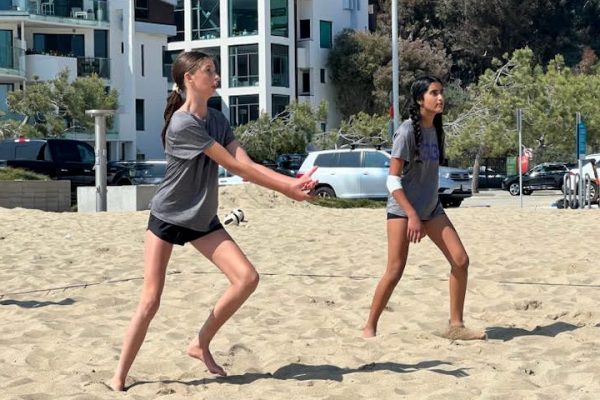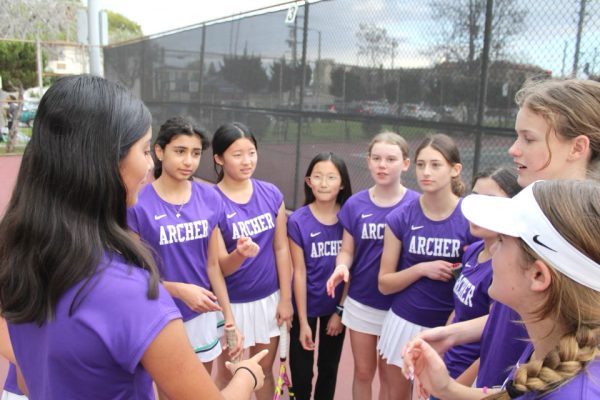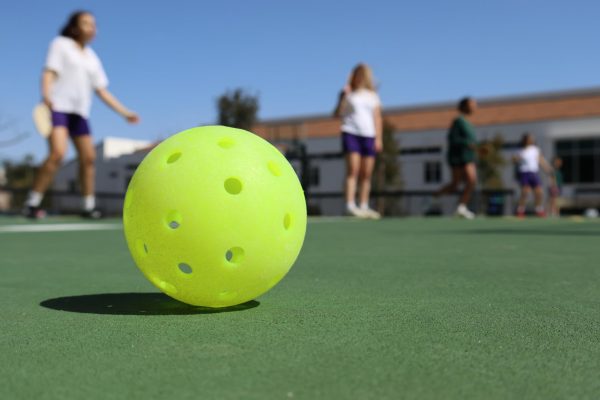Benefitting and learning through sports: Student athletes develop endurance, time management
Photo credit: Meredith Ho
A student athlete thinks about her day-to-day activities. Many Archer student athletes reported learning time management skills and resilience through sports. (Graphic Illustration by Meredith Ho)
May 29, 2023
When the sound of the alarm rings at 5:30 a.m., thousands of high school athletes across the nation get ready for another day of practices and classes. Upon returning home, they are expected to complete their schoolwork and continue the same routine the next day.
While this practice may seem grueling, many student athletes continue this schedule for years. What motivates them to keep going, and how do they benefit from participating in sports?
According to a study from the Journal of Adolescent Health, teenage participation in sports improves their mental health. The journal reported lower rates of depression symptoms, higher levels of self-esteem and less psychological distress in student athletes compared to students who don’t participate in sports.
Dr. Lisa Damour is a clinical physiologist who specializes in child and adolescent development, and she has written several best-selling books on parenting and adolescent development, including her newest edition: “The Emotional Lives of Teenagers.” Damour works with teenagers on a regular basis and has seen the impacts of participating in sports firsthand.
“Sports participation allows [students] downtime, which allows themselves to have fun and step away from their work,” Damour said. “We also know that exercise improves sleep and mental health. It can be a source of self-worth, either in terms of enjoying athletic achievement, being part of a team or taking pleasure in being a great teammate. There’s just enormous value in sports.”
A study from the University of Rochester states that sports participation enhances blood flow to the brain and helps the body build more connections between nerves, which can improve concentration, memory, creativity and problem-solving abilities.
Senior Treasure Brown has been throwing the shotput for 12 years and will be playing for California State University, Northridge next year. Brown said her favorite part of her sport is the competitiveness and being able to see the results of the work she puts in.
“I think it’s important that you are not stuck in academics … I think it’s very important to do something because it gives you that outlet, and it gives you something that you enjoy doing,” Brown said. “It doesn’t feel like a task every day, and once you are doing it for a long time it becomes fun. It’s also a set time when I don’t have to worry about the stressful things in life.”
The Oracle surveyed the Archer student body about the impact of playing sports on their mental health. Out of 497 students at Archer, The Oracle received 78 responses, and 63% of respondents play sports. Additionally, 84% of respondents either agreed or strongly agreed with the statement, “Participating in sports has a positive impact on me.”
Junior Amelia Hines has been swimming competitively since she was 9 years old and has participated in Archer’s swim program since sixth grade. Hines said she loves swimming because it is an opportunity to be her best self.
“There’s always a chance to get better when you go to practice, [and] it’s always another opportunity to keep pushing yourself, and I enjoy that,” Hines said. “I love my teammates, both on my club team and at Archer. They’re the best people ever, and they make even the worst practices so much fun. They always make me smile. And I also love that swimming has taught me a lot, not just about the sport, but about life and how to just be a better person.”
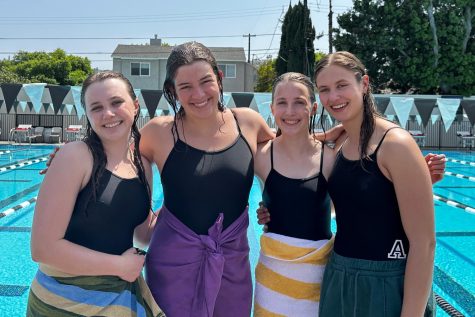
Although there are benefits to participating in sports, many student athletes face challenges, such as time management. Sixth grader Kaia Soni has been figure skating since she was 5 years old, practices six times per week and competes nationally. Soni said skating has taught her how to become more resilient when challenges arise.
“A year or two ago, I was in a skating show, and I fell really hard on my knee. Then, I couldn’t jump for a couple of weeks, and it set me back a lot. I lost a few times, but I just kept going, ” Soni said. “I learned to try really hard and that you always have to get back up, and I’ve learned a lot [about] time management. Before I started homeschooling, I only had a limited time on a day, so I had to make the best out of it.”
Freshman Oona Seppala has played tennis since she was 3. She plays on Archer’s varsity tennis team and practices three times a week for two hours. She said her biggest challenge is balancing schoolwork and tennis. Seppala utilizes bus rides to complete her work.
“It was really difficult when I’ve had to skip class because I had to leave school early for tennis meets,” Seppala said. “I’m very dedicated to my sport. I don’t mind leaving early usually, but the work ended up piling up at the end of the semester, and I felt really stressed … I really value my time in school.”
A study from California State University states time management was identified as a key factor in the academic success of student athletes. The research found that athletes had higher GPAs than non-athletes, and it is shown that finding a balance between academics and athletics is essential.
Archer swim coach Wilma Wong has been coaching for nine years, and she has seen student athletes develop life skills through sports. In addition, Wong said playing sports is a place to keep many athletes focused on their tasks.
“You learn to endure and overcome the hardships and know that there is a reward for you at the end of the season … Learning how to withstand the pain and keep on going because life isn’t always easy,” Wong said. “There’s a saying in sports: Feel the pain temporarily, so that you can live your life without regrets.”
In the video below, Wong discusses the benefits of participating in sports over a montage of Archer athletes demonstrating their skills.
You learn to endure and overcome the hardships and know that there is a reward for you at the end of the season … There’s a saying in sports: Feel the pain temporarily, so that you can live your life without regrets.
— Wilma Wong, Archer swim coach
Hines said setting long-term goals helps her overcome setbacks and maintain her determination. She said it is a long process to achieve her goals, and it involves a lot of discipline. Hines said it is important to have a support system and communicate with the people you train with.
“There are times that with any sport it’s really frustrating, and it’s easy to lose sight of the big picture,” Hines said. “Lean on your friends. They’re there for you and they really do want to help you …When it gets too much, remember why you’re doing all of it, remember what parts of your sport really love and try to chase that.”
Wong said that participating in sports fosters a love for learning, and athletes should have a curious and optimistic mindset in order to find joy in their training.
“Expand your horizons on what’s possible, and feel like you have more than just school to be proud of because I think we can study all we want but learning to do other things, constantly learning other skills and having an open mindset, a growth mindset,” Wong said. “If you as a student can have that philosophy of, ‘I’m going to learn for the rest of my life,’ it doesn’t matter whether it’s sports or other extracurricular activities.”




